The House’s newest MP, National’s Agnes Loheni will make a maiden statement outlining her intentions for her time at Parliament.
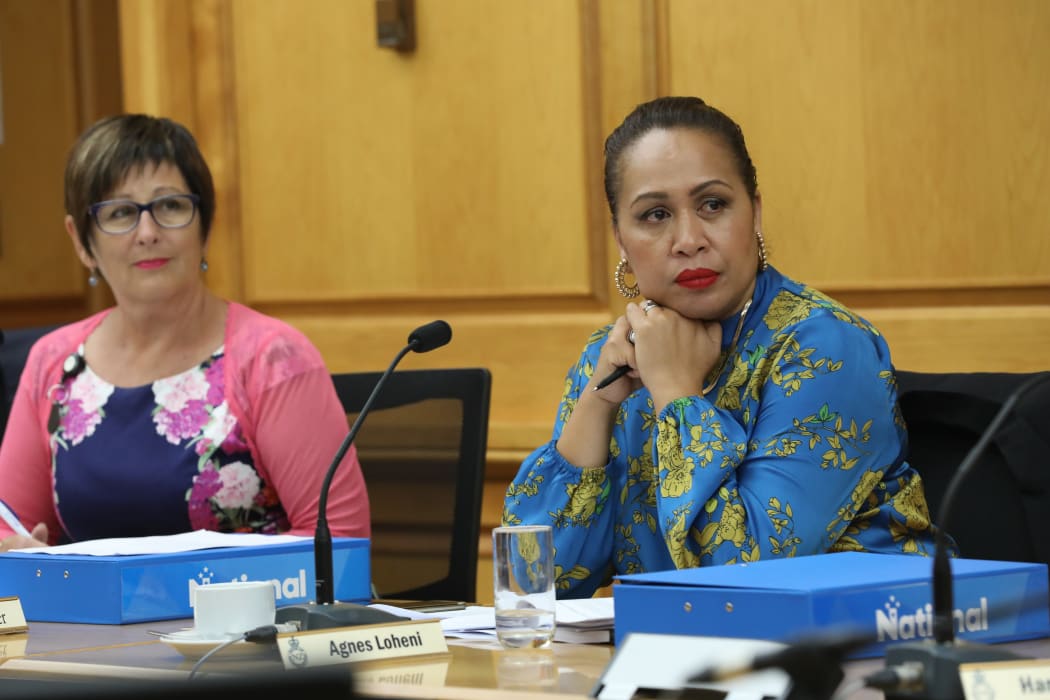
National MPs Maureen Pugh (left) and Agnes Loheni (right) in Select Committee Photo: VNP / Phil Smith
After that the usual spectacle that is Question Time will take place followed by the last of the debate on the Prime Minister’s Statement, and (after dinner) some legislation.
The order of business can be changed around a bit but here’s an outline of what we think MPs will try to work through in the House from 2pm to 10pm.
Question time - 2pm
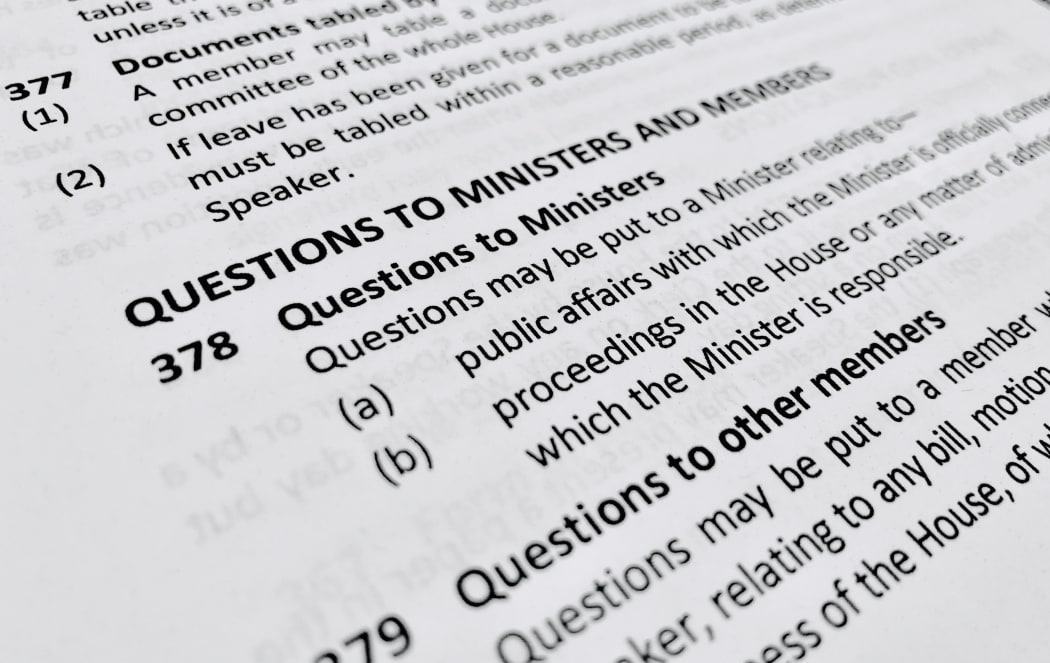
Photo: VNP / Daniela Maoate-Cox
A little bit of a later start for question time today but the usual format of 12 questions to Minister’s will take place.
The Opposition will attempt to catch out the Government while Government party MPs will ask patsy-questions to give a Minister a chance to share positive news or things they’ve done.
Supplementary (follow-up) questions are allocated to parties at the Speaker’s discretion.
No General Debate
Usually on Wednesdays a general debate is held. It’s a chance for topics that wouldn’t normally surface in the House to be discussed but this is postponed until the debate on the Prime Minister’s Statement is finished.
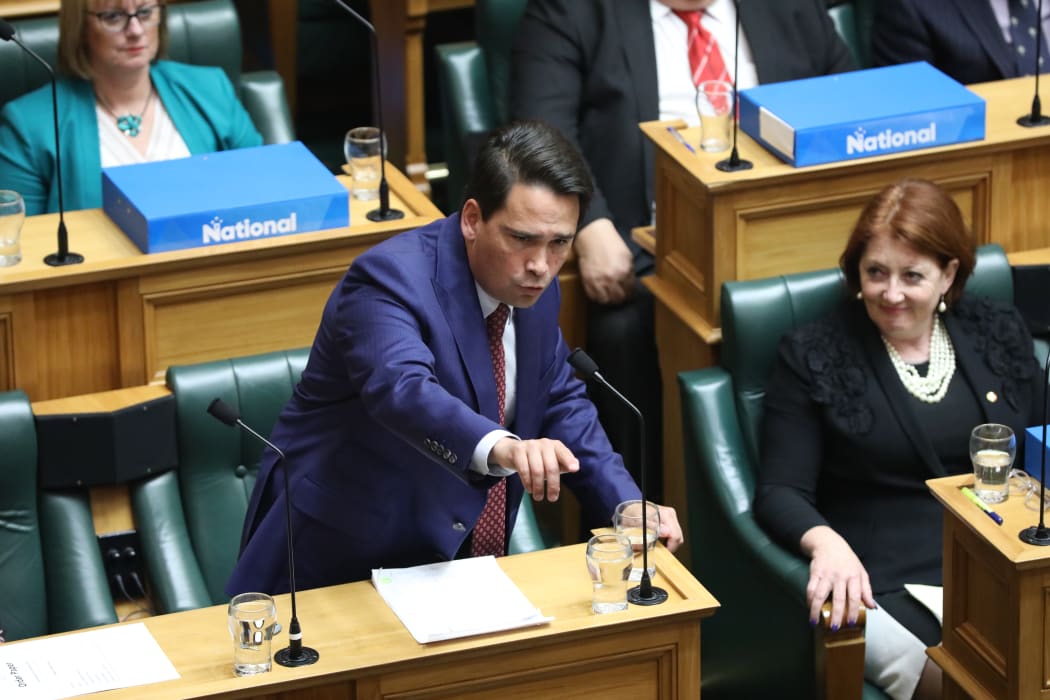
Leader of the National Party Simon Bridges during a general debate which won't happen today. Photo: VNP / Phil Smith
I have confidence in confidence alone - 3pm-ish
What:
-
The Government goes all Maria in The Sound of Music proclaiming that it has confidence in itself to continue governing the country.
Actually what though?
-
Fine, officially it’s the Debate on the Prime Minister’s Statement.
-
In non-election years the Prime Minister presents a parliamentary paper to the House outlining what their plan is for the year.
-
Leaders of parties with six or more MPs get to make 20 minute speeches on the merit of the Government’s plan with the Prime Minister going first. Other MPs get up to 10 minutes to speak with a total of 13 hours set aside for this debate (spread over a few days). Today should hear the last of those speeches.
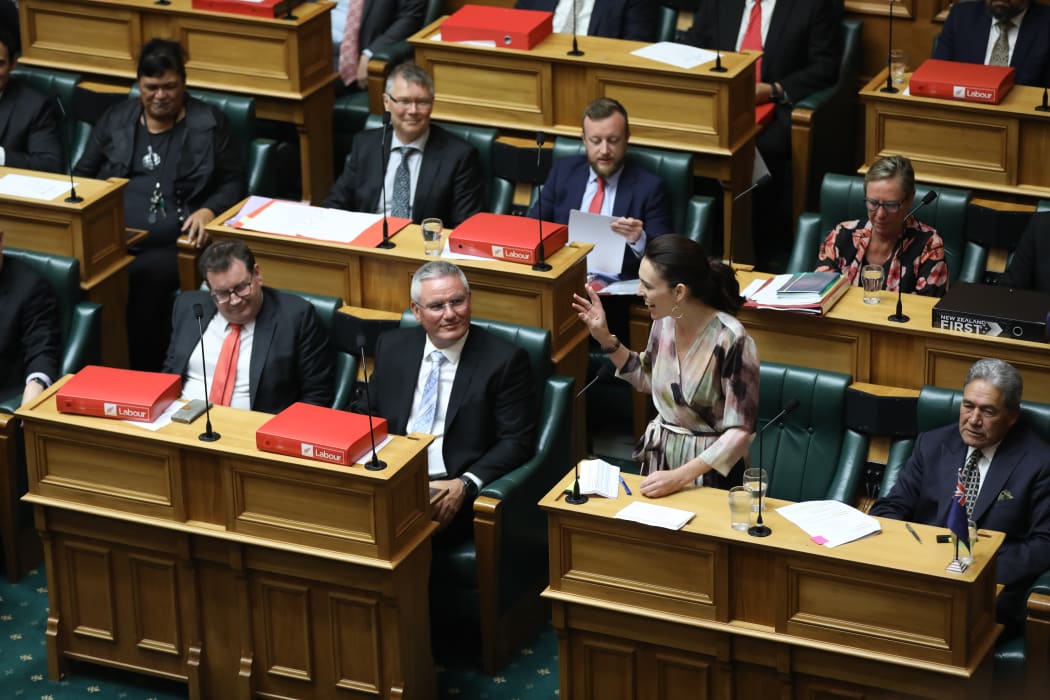
Prime Minister Jacinda Ardern addresses the House during the debate on the Prime Minister's Statement. Photo: VNP / Daniela Maoate-Cox
Why:
-
At the heart of this debate is a confidence motion which is a chance to de-throne the government, so to speak. At the end of the debate the House will vote on whether or not it has confidence in the Government to carry on governing. If it’s a no then a new Government would need to be formed (either from current MPs or after an early election). As the debate is likely to finish today, the confidence motion will be put to the House to vote on. SPOILER ALERT: it's unlikely the Government will be usurped.
-
The debate is a chance for both sides of the House to say why they should be in charge. The Government and MPs from its parties will make speeches about how much good it’s done and will keep doing if it stays in charge. The Opposition points out flaws and says why they’d be a better choice.
An MP’s first words - 5:45pm
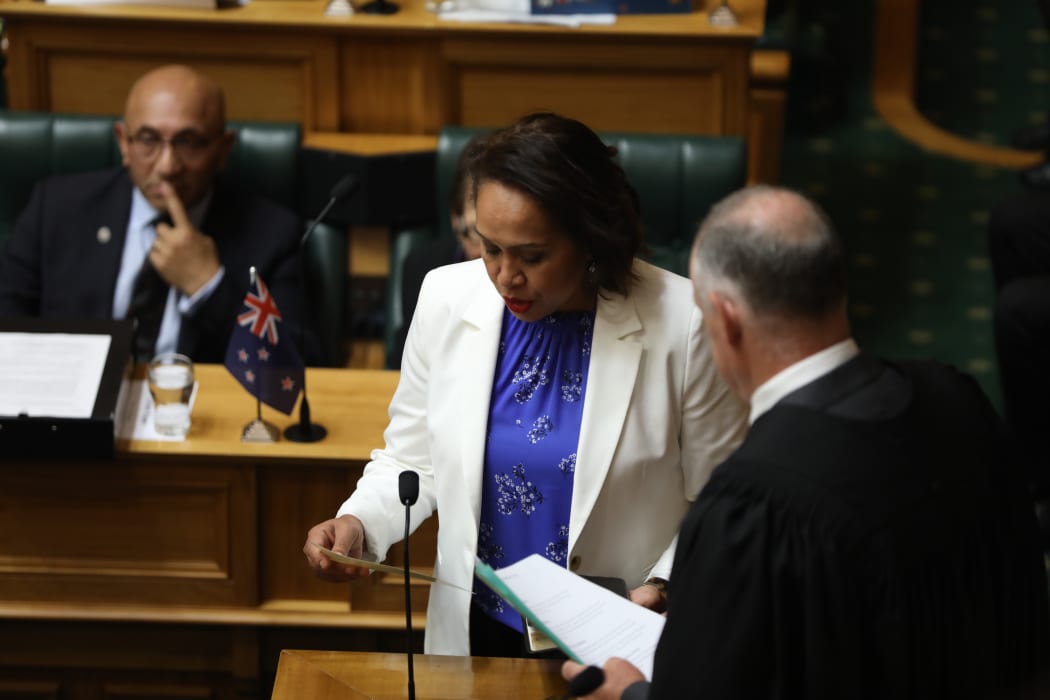
Agnes Loheni is sworn in to Parliament as a National MP. Photo: VNP / Daniela Maoate-Cox
What:
-
A Maiden Statement is a speech up to 15 minutes long from a new MP.
-
This is slightly different to a maiden speech in that it doesn’t take place during the Address in Reply debate which follows the opening of Parliament. MPs who fill a vacancy or who were unable to make a speech during that debate can make a maiden statement at another time.
-
Maiden speeches/statements are normally hopeful and aspirational, setting out the new member’s plans for their time at Parliament. They may also share personal details about their family, childhood, education, and work.
Third crime’s a charm - committee stage
What:
-
The last of the committee stage of the Crimes Amendment Bill (if it hasn’t been finished off already).
-
This bill does a few things including: repealing the law of “blasphemous libel” which is listed as an offence under the Crimes Act 1961, under the heading 'Crime against religion'. Who knew.
-
It also repeals the ‘year and a day’ law or Section 162 of the Crimes Act.
-
Lastly the bill repeals Section 71(2) of the Act and so will allow spouses or civil union partners to be charged as an accessory after the fact.
-
There’s a move planned to add in a current Member’s Bill (Ian McKelvie’s on rustling) to this bill.
-
Committee stages can be one of the longest stages for a bill in the House. MPs dissect the bill to make sure it will do what it promises to do. They also have the chance to speak multiple times which makes this a good stage to filibuster (slow the process down).
Who:
-
Minister of Justice Andrew Little is in charge of this bill.
Why:
-
Imprisonment for up to a year remains possible under current law for anyone who publishes any ‘blasphemous libel’ which can include worshiping Satan, or saying that God is cruel or unkind. While the clause is widely seen as anachronistic, removing it was the subject of most of the submissions on this bill. Yes you can read all the written submissions on a bill on the Parliament website (and watch the oral submissions as well).

Publishing blasphemous libel will no longer be an offense once this bill is passed. Photo: 123RF
-
The ‘year and a day’ law prevents people being charged for causing someone's death if they die more than 'one year and a day' after the criminal act causing the death. The law has prevented charges being laid in recent years including in relation to the collapse of the CTV building in the 2011 Christchurch earthquake.
-
Someone who helps a person who has committed a crime can be charged as being an 'accessory after the fact', except when they are that person’s spouse or civil union partner. This bill will get rid of that protection for spouses or partners.
Tax tax tax - committee stage
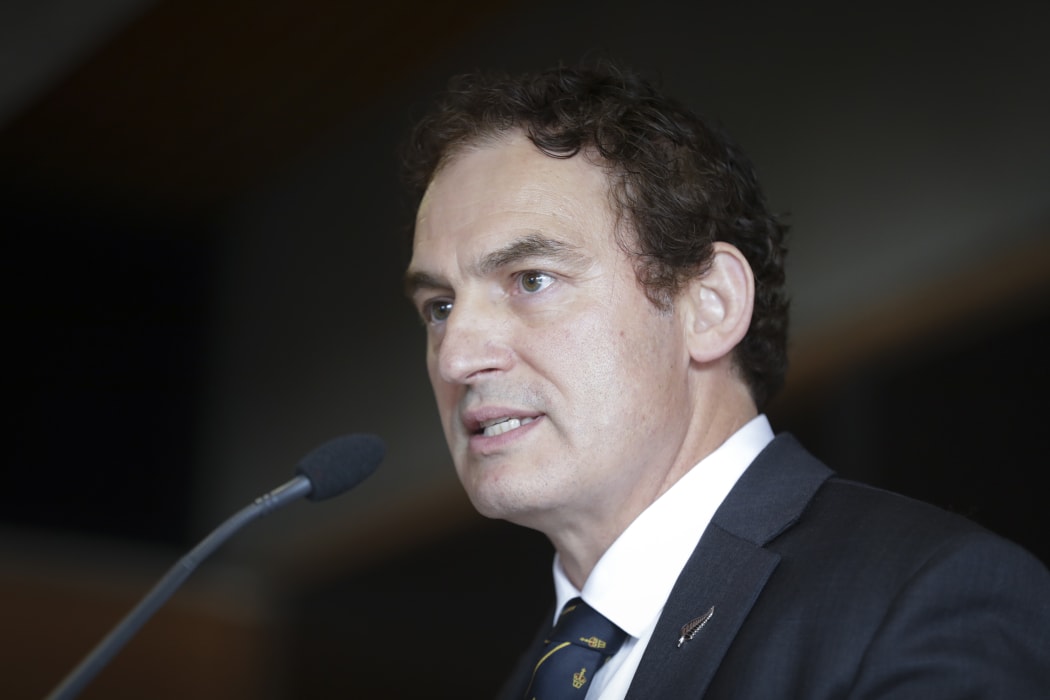
Minister of Revenue Stuart Nash is in charge of this bill. Photo: RNZ / Rebekah Parsons-King
What:
-
Official titles: Taxation (Annual Rates for 2018/19, Modernising Tax Administration, and Remedial Matters) Bill
-
A second reading debate has 12 speeches of up to 10 minutes in length. There is one speech left to get through on this debate.
-
This bill sets the income tax rate for the year and makes some other changes to the tax system including: introducing a “short process ruling” to allow small businesses to apply for a binding ruling from the Inland Revenue Department on how a taxation law would apply; allow people over 65 years to join KiwiSaver, although employers would not be obliged to make contributions for them; and add new KiwiSaver employee contribution rates of 6% and 10% to the existing rates of 3%, 4%, and 8%.
Who:
-
Minister of Revenue Stuart Nash is the sponsor of this bill.
Why:
-
This is one of the ways the Government collects revenue to pay for things like health, transport, housing, and education.
-
Bills that set tax rates are automatically confidence votes (like the debate on the Prime Minister’s Statement). No Government can operate without money so if the House doesn’t approve this bill then the Government would be short of cash to carry out its plans and would need to resign.
Tidying up ACC - committee stage

Photo: 123rf
What:
-
Official title: The Accident Compensation Amendment Bill
-
This bill aims to tidy up inconsistencies between different pieces of legislation and keep the regulations up to date and relevant.
-
It will make several changes including allowing surviving spouses to receive up to five years of weekly compensation regardless of age, and disestablishing the Accident Compensation Appeal Authority, which hears cases under the 1972 and 1982 Accident Compensation legislation.
-
Another committee stage, so not a fixed duration.
Who:
-
The Minister for ACC Iain Lees-Galloway
See what the House manages to get through each day on the Parliament website here.


